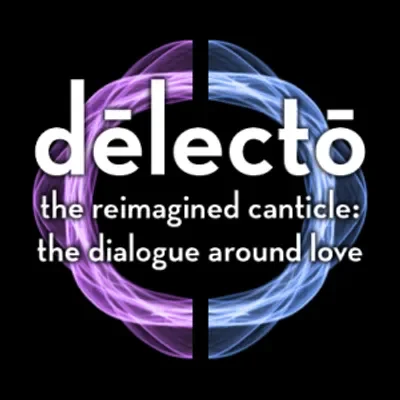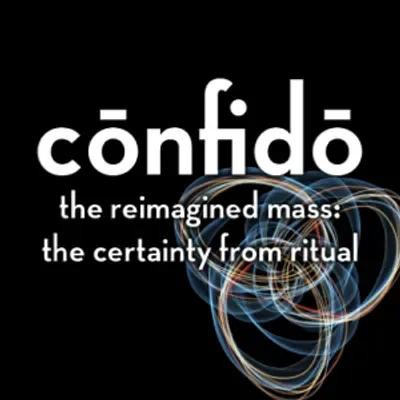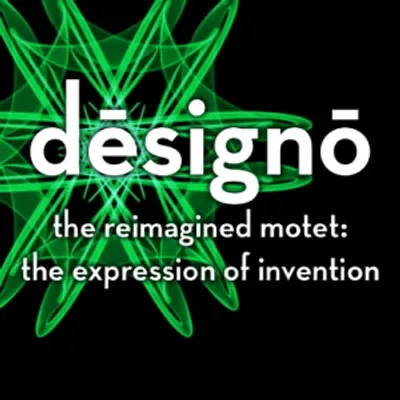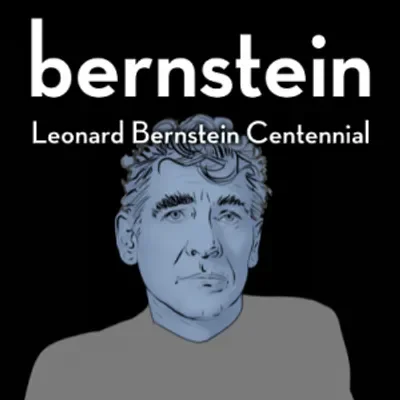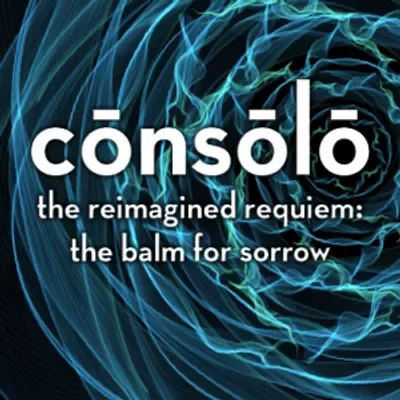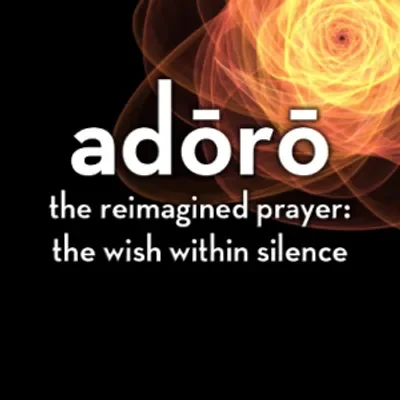Season 25 | 2018
DĒLECTŌ: The dialogue around love
Friday | 9 February 2018 | 8pm
Holy Rosary Catholic Church
4139 42nd Avenue Southwest | West Seattle
Saturday | 10 February 2018 | 8pm
St Stephen’s Episcopal Church
4805 Northeast 45th Street | Seattle
Sunday | 11 February 2018 | 7pm
Christ Episcopal Church
310 North K Street | Tacoma
The first concert series in The Esoterics’ 25th season reimagined the canticle – a conversation between lovers – a choral form originally inspired by the Biblical Song of songs. Rather than recounting the Biblical courtship between a young bride and her groom, the music of this concert will focus on seasoned love – or the love that is able to withstand the test of time.
This program opened with Love, a miniature gem by the Vancouver composer Rodney Sharman. In Sharman’s setting of this verse by the 17th-century poet George Sandys, the power of love is able to unite the forces of the ancient elements – fire, air, earth, and water – to create harmony.
The rest of this program included two large commissioned works, both enjoying world premieres. Thanks in part to funding from The National Endowment for the Arts, The Esoterics was able to commission the Minnesota-based composers Timothy Takach and Jocelyn Hagen (who are also husband and wife) to collaborate on a piece for the first time. The result of their creation, This is how you love, is a 13-movement dialogue about many aspects of marriage – from remembrances of first love, to overcoming obstacles and conflict. The texts that Jocelyn and Tim have thoughtfully curated include several contemporary poems, as well as excerpted transcripts from couples counseling sessions.
The other world premiere in this program is The river of love, Eric Banks’ most recent composition. This piece was commissioned as a wedding gift from Robert Alexander to his wife Ali, a long-time enthusiastic friend of the ensemble. Over the course of Banks’ trilingual River, he sets 15 couplets (or doha) in ancient Hindi and Farsi (with English translations) by the 14th-century Sufi poet, musician, and mystic, Amir Khusro. Khusro’s poems explore different images of love as a river – as a vehicle for a journey, as a distance to be crossed, as a timeless source of renewal, as a depth into which we are immersed, and by which we are ultimately transformed.
CONCERT REPERTOIRE:
Love (2002)
by Rodney Sharman
The river of love (2017)
world premiere commission
by Eric Banks
This is how you love (2017)
world premiere commission
by Jocelyn Hagen & Timothy Takach
CŌNFIDŌ: The certainty from ritual
Friday | 13 April 2018 | 8pm
St Stephen’s Episcopal Church
4805 Northeast 45th Street | Seattle
Saturday | 14 April 2018 | 8pm
Holy Rosary Catholic Church
4139 42nd Avenue Southwest | West Seattle
Sunday | 15 April 2018 | 7pm
Christ Episcopal Church
310 North K Street | Tacoma
In the second concert series of its 25th season, The Esoterics reimagined the mass – the ancient rite of the Christian liturgy, in which believers gather in sacred community and are then “dismissed” (the origin of the word missa) into the secular world. Rather than offer a concert of masses without comment, The Esoterics will present four settings of mass texts that express crises of faith, criticize organized religion, and prioritize the health of our planet over any individual belief.
This program included Missa Charles Darwin by the Massachusetts composer Gregory Brown. Brown’s work is based on the architecture of the Latin rite, but replaces texts with excerpts from Darwin’s On the origin of species and The descent of man. The Esoterics' performance was the world premiere of the mixed chorus version of this work.
In addition to Brown’s Missa, The Esoterics performed two masses by British composer Giles Swayne, Missa Tiburtina and Petite messe solitaire. Swayne’s Tiburtina is inspired by Chief Seattle’s 1854 speech: “the earth does not belong to man; man belongs to the earth.” Swayne tells us that he composed the Petite messe solitaire (“lonely little mass”) for two choirs, to represent the clash between traditional Christian certainties and current thinking – which is more complex, and full of doubt.
To conclude the program, The Esoterics performed Island in space, Kirke Mechem’s brilliant setting of “dona nobis pacem,” the final phrase of the Latin mass. In Mechem’s piece, this phrase is sung in tandem with verses by Archibald MacLeish, as well as a 1969 description of the Earth by Russell Schweickart, the first astronaut to view our planet from space.
CONCERT REPERTOIRE:
Island in space (1990)
by Kirke Mechem
Missa Charles Darwin (2013)
choral world premiere
Kyrie
Gloria
Alleluia
Credo
Sanctus
Agnus Dei
by Gregory Brown
Missa Tiburtina (1985)
Kyrie
Gloria
Sanctus
Benedictus
Agnus Dei
Dona nobis pacem
by Giles Swayne
Petite messe solitaire (1997)
Kyrie
Sanctus
Benedictus
Agnus Dei
by Giles Swayne
DĒSIGNŌ: The expression of invention
Friday | 8 June 2018 | 8pm
St Stephen’s Episcopal Church
4805 Northeast 45th Street | Seattle
Saturday | 9 June 2018 | 8pm
Holy Rosary Catholic Church
4139 42nd Avenue Southwest | West Seattle
Sunday | 10 June 2018 | 7pm
Christ Episcopal Church
310 North K Street | Tacoma
The Esoterics celebrated its 25th anniversary with a program of reimagined motets, in keeping with the theme of this year: saecula sacrorum, or “secular versions of sacred forms.” This program explored the motet, not only as the most virtuosic and architectural form of ancient choral music, but also for the “play on words” so common in its construction.
This program featured two “choral cathedrals” composed by Eric Banks: Etternalmente vive and Elucidation, setting poems in Italian and Swedish by Michelangelo Buonarroti and Karin Boye. It also included two new cycles by the Finnish composer Jaakko Mäntyjärvi: Hommage à Edith (setting three verses by the Finland-Swedish poet Edith Södergran), and Seven last words, a hilarious rendering of the last seven entries in the Century dictionary (1910), sung as if in a spelling bee, with intermittent limericks.
The ensemble also performed the world premiere of the choral version of Lisa Bielawa’s Machina mundi, a work for digitally processed voices and live chorus that sets a collection of philosophical texts that grapple with the origin of the universe. In addition, the group performed the world premiere of Joshua Fishbein’s Of the ages, a triptych on the various stages of life, setting texts of Elizabeth Pennell, Laurence Alma-Tadema, and William Butler Yeats.
Finally, The Esoterics reprised one of its favorite works, Richard Strauss’ inimitable Deutsche Motette. One of the most virtuosic, cathartic, and joyful pieces in the choral repertory, Strauss’ pyrotechnic setting of Friedrich Rückert’s poem was written on a dare from the Vienna Opera Chorus in 1913.
CONCERT REPERTOIRE:
Deutsche Motette (1913)
by Richard Strauss
Elucidation (2010)
by Eric Banks
Etternalmente vive [Eternally alive] (2006)
by Eric Banks
Hommage à Edith (2016)
Den skönaste guden
Gudarnas lyra
Till Eros
by Jaakko Mäntyjärvi
Machina mundi (2000)
choral world premiere
Lucretius
The physicists and the metaphysicists
by Lisa Bielawa
Of the ages (2018)
world premiere commission
Youth and age
Playgrounds
The old men admiring themselves in the water
by Joshua Fishbein
Seven last words (2015)
Zymotic
Zymotically
Zymurgy
Zyrichthys
Zythepsary
Zythum
Zyxomma
by Jaakko Mäntyjärvi
BERNSTEIN: Leonard Bernstein centennial
Saturday | 25 August 2018 | 8pm
St James Cathedral
804 9th Avenue | Seattle
On 25 August 1918, Jennie and Samuel Bernstein, immigrants to the US from Tsarist Russia, welcomed a son, Louis, who would grow up to be a celebrated American conductor, composer, pianist, and educator. Louis was always known as Leonard (or Lenny), and changed his name legally at the age of 15.
Bernstein's achievements are unique in music history. He was a brilliant conductor and concert pianist, a pioneering educator, a humanitarian, as well as a prolific composer for over half a century. His compositions varied from Broadway classics, to ballet, opera, orchestral and chamber music, and even a film score. And of course, he composed choral pieces, many of which are among his greatest works.
To celebrate the life and work of this remarkable American composer on the evening of his 100th birthday, The Esoterics were joined by cathedral organist Joseph Adam, harpist John Carrington, and percussionist Matthew Kocmieroski, to present Bernstein’s entire sacred choral oeuvre in the sublime acoustic of St James Cathedral.
CONCERT REPERTOIRE: (all composed by Leonard Bernstein)
Almighty Father, from Mass (1971)
Canon, from Kaddish Symphony (1963)
Chichester Psalms (1965)
Psalm 108:2 & Psalm 100
Psalm 23 & Psalm 2:1-4
Psalm 131 & Psalm 133:1
French and Latin choruses from The lark (1955)
Spring song
Court song
Soldier's song
Prelude
Gloria
Sanctus
Benedictus
Requiem
Gloria tibi, from Mass (1971)
Hashkiveinu (1945)
Missa brevis (1988)
Kyrie
Gloria
Sanctus
Benedictus
Agnus Dei
Dona nobis pacem
Simchu na (1947)
Simple song, from Mass (1971)
Warm-up, from Mass (1970)
Yigdal (1950)
CŌNSŌLŌ: The reimagined requiem
Friday | 5 October 2018 | 8pm
St Stephen’s Episcopal Church
4805 Northeast 45th Street | Seattle
Saturday | 6 October 2018 | 8pm
Holy Rosary Catholic Church
4139 42nd Avenue Southwest | West Seattle
Sunday | 7 October 2018 | 7pm
Christ Episcopal Church
310 North K Street | Tacoma
The Esoterics continued its 25th season with a program of reimagined requiems. Coming from the Latin requies, meaning ‘rest’, the word requiem is among the opening words of the Roman Catholic Mass for the dead. In a secular context, the word refers to an act of remembrance after loss. In this concert series, The Esoterics featured new choral works that explore the comfort and healing that are found in this musical act of remembrance.
As the centerpiece of this autumn concert, The Esoterics recognized the winners of our 2017 POLYPHONOS competition, and performed their world premieres: Forever hurts (setting two poems of loss by Karin Boye and Paul Laurence Dunbar) by Anna-Karin Klockar from Falun, Sweden; Uprooted (setting texts from interviews with two local Japanese-American women who were sent to internment camps during WWII) by Sarah Rimkus of Aberdeen, Scotland (via Bainbridge Island); and Sa pampang [Along the shore] (recounting a mother’s loss of her entire family in the catastrophic typhoon Haiyan in 2013) by Ily Matthew Maniano from Manila.
Oscar Wilde’s Requiescat was written in remembrance of his sister Isola, who died at the tender age of ten. The Esoterics performed two different settings of this poem, by Eric Barnum (2007) and Rodney Sharman (2015). The ensemble also reprised Kevin Puts’ devastatingly beautiful setting of Emily Brontë’s poem, At castle wood, a movement from his 2011 choral cycle, To touch the sky.
Finally, The Esoterics presented the Pacific Northwest premiere of Dale Trumbore’s own secular requiem, How to go on, a 2017 work for chorus and solo voices that finds beauty, catharsis, and solace in the words of three living poets: Barbara Crooker, Amy Fleury, and Laura Foley.
CONCERT REPERTOIRE:
At castle wood, from To touch the sky (2011)
by Kevin Puts
Forever hurts (2018)
world premiere commission
by Anna-Karin Klockar
How to go on (2017)
How
However difficult
To see it
Relinquishment
Requiescat
Knowing the end
Sometimes peace comes
When at last I join
by Dale Trumbore
Requiescat (2007)
by Eric Barnum
Requiescat (2015)
by Rodney Sharman
Sa pampang [Along the shore] (2018)
world premiere commission
by Ily Matthew Maniano
Uprooted (2018)
world premiere commission
by Sarah Rimkus
ADŌRŌ: The wish within silence
Friday | 7 December 2018 | 8pm
St Stephen’s Episcopal Church
4805 Northeast 45th Street | Seattle
Saturday | 8 December 2018 | 8pm
Holy Rosary Catholic Church
4139 42nd Avenue Southwest | West Seattle
Sunday | 9 December 2018 | 3pm
St John’s Episcopal Church
114 20th Avenue Southeast | Olympia
The Esoterics concluded its 25th season with a program of reimagined prayers, in keeping with the theme of this year: saecula sacrorum, or “secular versions of sacred forms.” From the first moment humans appealed to a higher power, prayers always included three aspects: an earnest wish, a willing benefactor, and a quiet utterance. In their secular form, prayers are often made to the divine that we find in nature, in ourselves, and in our communities. In this concert series, The Esoterics performed a program of new choral works that explore the solace, focus, and strength inspired by the natural world.
The program included two settings of Sara Teasdale’s poetry by The Esoterics’ composer emeritus, Donald Skirvin – There will come soft rains and Places, like music – as well as two pieces by former POLYPHONOS winner Christina Whitten Thomas – My cathedral (setting Longfellow) and Discovery (setting verses by poet-oceanographer Deirdre Lockwood). In addition, the ensemble performed When I close my eyes I dream of peace by Swedish composer Karin Rehnqvist, a piece that sets this single phrase (uttered by an anonymous Croatian boy during the Yugoslav Wars) in twelve languages.
The group also sang Mason Bates’ “far-out” Observer in the Magellanic cloud, which sets an ancient Maori entreaty to the night sky for a fruitful harvest. Director Eric Banks also contributed a short piece to this program, At all times, setting verses on light by the XIV Dalai Lama.
The centerpiece of concert was the eleven-movement cycle of Prayers by John Gould Fletcher, composed by Joseph Gregorio. Joe set three of Fletcher’s “secular humanist” prayers when he won our POLYPHONOS competition back in 2013, and they were so compelling that we commissioned him to write a cycle that included all eleven of them! We are especially grateful to the Ann Stookey Fund for New Music for helping to fund this commission.
CONCERT REPERTOIRE:
At all times (2015)
by Eric Banks
Discovery (2011)
by Christina Whitten Thomas
My cathedral (2009)
by Christina Whitten Thomas
Observer in the Magellanic cloud (2011)
by Mason Bates
Places, like music (2016)
by Donald Skirvin
Prayers (2018)
world premiere commission
Let the wind come...
Let the rain beat in our faces...
Let our bodies run...
Let us bear rich heavy harvests...
Let the dark king...
Let us know the love...
God of the gods of earth...
Let us be hard...
Though we must perish...
Let there be eternal good...
by Joseph Gregorio
There will come soft rains (2016)
by Donald Skirvin
When I close my eyes I dream of peace (2016)
by Karin Rehnqvist
